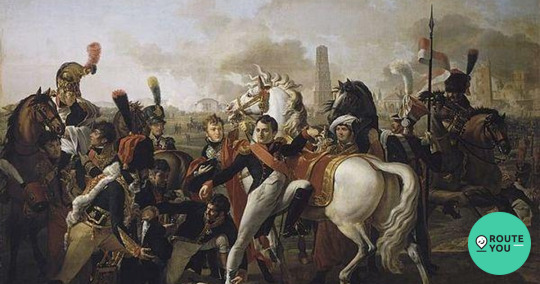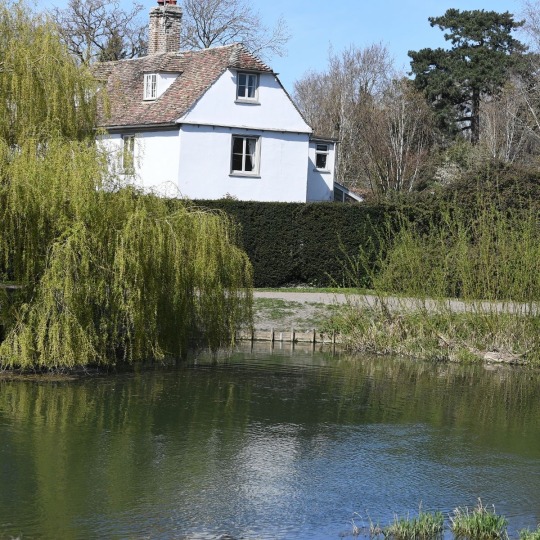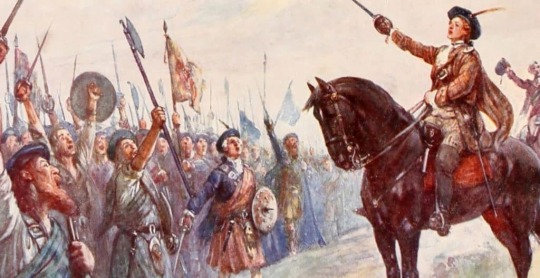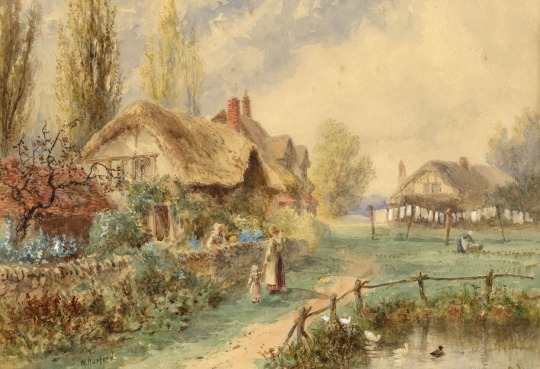Text
27th April
o by the by by E.E. Cummings
E.E. Cummings was an unconventional American poet, who based his verse on the sound of words rather than attempting to tell a story or make a point. Perhaps not to everyone’s taste, Cummings’ poetry was certainly innovative.

E. E. Cummings. Source: Britannica
o by the by
o by the by
has anybody seen
little you-i
who stood on a green
hill and threw
his wish at blue
with a swoop and a dart
out flew his wish
(it dived like a fish
but it climbed like a dream)
throbbing like a heart
singing like a flame
blue took it my
far beyond far
and high beyond high
bluer took it your
but bluest took it our
away beyond where
what a wonderful thing
is the end of a string
(murmurs little you-i
as the hill becomes nil)
and will somebody tell
me why people let go
And with Cummings’ flight of fancy, I bring Ms Esiri’s collection to a close, with thanks. This is the final poem of the day. Please check out the original book: I promise you will find it as inspiring as I did.
7 notes
·
View notes
Text
26th April
Into my Heart an Air that Kills by A. E. Housman
The ‘blue remembered hills’ of Housman’s poems are oft-quoted, but this is less a nature verse, and more one of the inaccessibility of the past. What’s done is done appears to be Housman’s message, no matter how much we may yearn to go back.

Hills Far Away by Anthony Mwangi (2016). Source: Pixels.com
Into my Heart an Air that Kills
Into my heart an air that kills
From yon far country blows:
What are those blue remembered hills,
What spires, what farms are those?
That is the land of lost content,
I see it shining plain,
The happy highways where I went
And cannot come again.
Was it Shakespeare who said ‘the past is a different country’? Our memories are always bound by time and place. Perhaps it is better to live life in the present.
0 notes
Text
25th April
Robinson Crusoe’s Wise Sayings by Ian McMillan
Robinson Crusoe by Daniel Defoe was published on this day in 1719. It is generally believed to be the first English novel. Many readers thought it was an autobiography and that Crusoe’s adventures were real. McMillan’s poem gently mocks Crusoe’s extraordinary experiences by imagining the character constructing wise sayings on the back of them.

Robinson Crusoe by Walter Paget. Source: Wikipedia
Robinson Crusoe’s Wise Sayings
You can never have too many turtle eggs.
I’m the most interesting person in this room.
A beard is as long as I want it to be.
The swimmer on his own doesn’t need trunks.
A tree is a good clock.
If you talk long enough to a rock you’ll fall asleep.
I know it’s Christmas because I cry.
Waving at ships is useless.
Footprints make me happy, unless they’re my own.
Defoe modelled his character on a real life privateer and Royal Navy officer named Alexander Selkirk, who spent four months as a castaway on a deserted South Sea island at his own request.
0 notes
Text
24th April
Incident of the French Camp by Robert Browning
The Battle of Ratisbon took place on this day in 1809, between the French forces of the Emperor Napoleon, and those of imperial Austria; the French won. In this poem Browning imagines an exchange between the Emperor and a dauntless young French soldier bearing a message from the front. Three of the six stanzas follow below.

The Battle of Ratisbon by Charles Thevenin. Source: Route You website
Incident of the French Camp
You know, we French storm’d Ratisbon:
A mile or so away,
On a little mound, Napoleon
Stood on our storming-day;
With neck out-thrust, you fancy how,
Legs wide, arms lock’d behind,
As if to balance the prone brow
Oppressive with its mind.
…
Then off there flung in smiling joy,
And held himself erect
By just his horse’s mane, a boy:
You hardly could suspect -
(So tight he kept his lips compressed,
Scarce any blood came through)
You look’d twice ere you saw his breast
Was all but shot in two.
…
The chief’s eye flashed; but presently
Softened itself, as sheathes
A film the mother-eagle’s eye
When her bruised eaglet breathes.
‘You’re wounded!’ ‘Nay,’ the soldier’s pride
Touch’d to the quick, he said:
‘I’m kill’d, Sire!’ And his chief beside
Smiling the boy fell dead.
The taking of Ratisbon resulted in an orderly Austrian retreat from Bavaria before Archduke Charles’ army was destroyed at Wagram and Napoleon entered Vienna. The battle is notable for one of the extremely rare occasions that the Emperor himself received a slight wound.
1 note
·
View note
Text
23rd April
from Richard II by William Shakespeare
Today is St George’s Day, the patron saint of England. It is also the traditional date for Shakespeare’s birthday. In the passage below from Richard II, the playwright extols England, in terms many still find stirring today.

Image by Maruisz Matuszewski. Sources: Pixabay and Poetry in Surrey Libraries website
from Richard II
This royal throne of kings, this sceptered isle,
This earth of majesty, this seat of Mars,
This other Eden, demi-paradise,
This fortress built by Nature for herself
Against infection and the hand of war;
This happy breed of men, this little world;
This precious stone set in a silver sea,
Which serves it in the office of a wall,
Or as a moat defensive to a house,
Against the envy of less happier lands;
This blessed plot, this earth, this realm, this England.
Many English patriots do not read beyond this point in John of Gaunt’s dying speech. The second part of the passage is a furious denunciation of the corruption and incompetence visited on the realm by King Richard, and the ruin it will bring.
3 notes
·
View notes
Text
22nd April
The Woodspurge by Dante Gabriel Rossetti
Rossetti was a poet as well as an artist. Here, grief stricken, nothing touches him but the sight of the spring blooming British wildflower, the woodspurge.

Source: Nature Spot website
The Woodspurge
The wind flapped loose, the wind was still,
Shaken out dead from tree and hill:
I had walked on at the wind’s will, -
I sat now, for the wind was still.
Between my knees my forehead was, -
My lips, drawn in, said not Alas!
My hair was over in the grass,
My naked ears heard the day pass.
My eyes, wide open, had the run
Of some ten weeds to fix upon;
Among those few, out of the sun,
The woodspurge flowered, three cups in one.
From perfect grief there need not be
Wisdom or even memory:
One thing then learnt remains to me, -
The woodspurge has a cup of three.
A grieving person can find solace from the most unlikely source. Rossetti captures this moment movingly in his poem.
0 notes
Text
21st April
from The Old Vicarage, Grantchester by Rupert Brooke
Brooke wrote this poem while recovering from a nervous breakdown in Berlin. It is a happy poem, filled with nostalgia for his time as a student at Cambridge University, and the picturesque nearby village of Grantchester where he spent much of his free time.

Grantchester, Cambridgeshire. Source: Cambridge News
from The Old Vicarage, Grantchester
Ah God! to see the branches stir
Across the moon at Grantchester!
To smell the thrilling-sweet and rotten
Unforgettable, unforgotten
River-smell, and hear the breeze
Sobbing in the little trees.
Say, do the elm-clumps greatly stand
Still guardians of that holy land?
The chestnuts shade, in reverend dream,
The yet unacademic stream?
Is dawn a secret shy and cold
Anadyomene, silver-gold?
And sunset still a golden sea
From Haslingfield to Madingley?
And after, ere the night is born,
Do hares come out about the corn?
Oh, is the water sweet and cool,
Gentle and brown, above the pool?
And laughs the immortal river still
Under the mill, under the mill?
Say, is there Beauty yet to find?
And Certainty? and Quiet kind?
Deep meadows yet, for to forget
The lies, the truths, and pain?…oh! yet
Stands the Church clock at ten to three?
And is there honey still for tea?
Grantchester remains a picture postcard place. The Times recently voted it the fourth prettiest village in England; perhaps Brooke would recognise it still.
6 notes
·
View notes
Text
20th April
I Had a Dove by John Keats
This sad tale of a captive dove that died, much to the distress of its human owner, is made all the more poignant by the fact that Keats himself died at the age of 25.

The Captive Dove. Source: Poem Analysis
I Had a Dove
I had a dove, and the sweet dove died;
And I have thought it died of grieving:
O, what could it grieve for? Its feet were tied,
With a silken thread of my own hand’s weaving;
Sweet little red feet, why should you die?
Why should you leave me, sweet bird, why?
You liv’d alone on the forest tree,
Why, pretty thing! could you not live with me?
I kiss’d you oft and gave you white peas;
Why not live sweetly, as in the green trees?
Caged birds are intrinsically tragic creatures. Despite Keats’ protests in this poem, he knows in his heart of hearts why his dove deserted him.
1 note
·
View note
Text
19th April
Concord Hymn by Ralph Waldo Emerson
The Battle of Lexington and Concord, the opening battle of the American War of Independence, took place on this day in 1775. An inconclusive clash between a Massachusetts Patriot militia and a squad of Redcoats, the fight nonetheless marked the irrevocable descent into war between the American colonies and the British Crown. The war would last eight years and end with the secession of the colonies from the British Empire and, ultimately, the formation of the United States of America.

The Battle of Lexington by William Barnes Wollen (1910). Source: Wikipedia
Concord Hymn
By the rude bridge that arched the flood,
Their flag to April’s breeze unfurled,
Here once the embattled farmers stood
And fired the shot heard round the world.
The foe long since in silence slept;
Alike the conqueror silent sleeps;
And Time the ruined bridge has swept
Down the dark stream which seaward creeps.
On this green bank, by this soft stream,
We set today a votive stone;
That memory may their dead redeem,
When, like our sires, our sons are gone.
Spirit, that made those heroes dare
To die, and leave their children free,
Bid Time and Nature gently spare
The shaft we raise to them and thee.
The American foundational myth of national revolution against foreign tyranny has been carefully curated. However, in what many scholars now describe as a civil war, the outcome was disastrous for many Americans - principally Loyalists forced into ruinous exile in Canada, and black Americans condemned to continued slavery.
4 notes
·
View notes
Text
18th April
Waste Land Limericks by Wendy Cope
Eliot may be one of the titans of English literature but his opaque and pretentious verse is easily lampooned. Wendy Cope amusingly pokes fun at The Waste Land’s classical references and depressing urban imagery in a series of entertaining “limericks”, four of which follow below.

Source: Boston Area and Small Press Scene website
Waste Land Limericks
I
In April one seldom feels cheerful;
Dry stones, sun and dust make me fearful;
Clairvoyantes distress me,
Commuters depress me -
Met Stetson and gave him an earful.
II
She sat on an almighty fine chair
Sparks flew as she tidied her hair;
She asks many questions
I make few suggestions -
Bad as Albert and Lil - what a pair!
III
The Thames runs, bones rattle, rats creep;
Tiresias fancies a peep -
A typist laid,
A record is played -
Wei la la. After that it gets deep.
V
No water. Dry rocks and dry throats,
Then thunder, a shower of quotes
From the Sanskrit and Dante.
Da. Damyata. Shantih.
I hope you’ll make sense of the notes.
Cope’s mention of “the notes” at the end of her final limerick references Eliot’s Notes to The Waste Land which are famously indecipherable.
0 notes
Text
17th April
from The Waste Land by T.S. Eliot
Eliot is one of the most important poets in the English language. Impressionistic, intellectual and sometimes wilfully obscure, his poetry is suffused with mythic themes and melancholia. His most epic work is The Waste Land, a tale of decline and wonder, rooted in pagan myth but speaking to an unhappy twentieth century present. One small excerpt of this extraordinary work follows below.

Autumn 1877 by Carl Fredrik Hill. Source: Read Castle website
from The Waste Land
I. The Burial of the Dead
April is the cruellest month, breeding
Lilacs out of the dead land, mixing
Memory and desire, stirring
Dull roots with spring rain.
Winter kept us warm, covering
Earth in forgetful snow, feeding
A little life with dried tubers.
Summer surprised us, coming over the Starnbergersee
With a shower of rain; we stopped in the colonnade,
And went on in sunlight, into the Hofgarten,
And drank coffee, and talked for an hour.
Bin gar keine Russin, stamm’ aus Litauen, echt deutsch.
And when we were children, staying at the arch-duke’s,
My cousin’s, he took me out in a sled
And I was frightened. He said, Marie,
Marie, hold on tight. And down we went.
In the mountains, there you feel free.
I read, much of the night, and go south in the winter.
The Waste Land is full of characters, including this daughter of a pre First World War aristocracy, nostalgising for the carefree privileged winters of her childhood. The April springtime showers are a reminder of her reduced present, and are not welcome.
0 notes
Text
16th April
Will Ye No Come Back Again? by Carolina Oliphaunt, Lady Nairne
On this day in 1746, the Jacobite Rebellion, led by Prince Charles Edward Stuart (“Bonnie Prince Charlie”) was finally defeated by the Hanoverian forces of King George II at the Battle of Culloden. The prince fled for France, deserting his largely Highland Scots army, never to return. Oliphaunt summons up the feelings of sorrow and loss the defeat of the Jacobite cause left in many of Charles’ followers.

Source: Historic UK
Will Ye No Come Back Again?
Will ye no come back again?
Will ye no come back again?
Better lo’ed ye cannae be,
Will ye no come back again?
Bonnie Charlie’s now awa,
Safely owre the friendly main;
Mony a heart will break in twa,
Should he ne’er come back again.
Ye trusted in your Hieland men,
They trusted you, dear Charlie;
They kent you hiding in the Glen,
Your cleadin’ was but barely.
…
We watched thee in the gloaming hour,
We watched thee in the morning grey;
Tho’ thirty thousand pounds they’d gie,
Oh there is nane that wad betray.
…
Will ye no come back again?
Will ye no come back again?
Better lo’ed ye cannae be,
Will ye no come back again?
Despite the romanticism surrounding Charles’ doomed attempt to restore the Stuarts to the throne of the United Kingdom, the defeat of the rebellion was disastrous for the Highlanders, leading directly to the Highland Clearances and the destruction of an entire way of life.
2 notes
·
View notes
Text
15th April
Ode on the Loss of the Titanic by Geoffrey Hill
On this day in 1912, RMS Titanic sank in the icy waters of the North Atlantic on its maiden voyage from Southampton to New York. The sinking’s death toll was catastrophic: over 1500 people died of drowning or exposure, nearly three quarters of the passengers and crew.

Untergang der Titanic by Willy Slower (1912). Source: Wikipedia
Ode on the Loss of the Titanic
Thriving against facades the ignorant sea
Souses our public baths, statues, waste ground:
Archaic earth-shaker, fresh enemy
(‘The tables of exchange being overturned’);
Drowns Babel in upheaval and display;
Unswerving, as were the admired multitudes
Silenced from time to time under its sway.
By all means let us appease the terse gods.
The Titanic disaster caught the public imagination because the sinking appeared to be the Ancient Greek god Hubris at work, bringing down an “unsinkable” ship and many of the rich and famous of the day, together with hundreds of unnamed third class passengers seeking a new life in America. Taylor’s poem invokes both the god of the sea, Poseidon, and the god of the Hebrews in his tale of divine anger at man’s presumption.
6 notes
·
View notes
Text
14th April
The Woods and Banks by W.H. Davies
The return of cuckoos to the U.K. supposedly takes place today, St Tiburtius’ Day, or Cuckoo Day. Davies’ poem celebrates the migrants’ return.

Source: The Guardian
The Woods and Banks
The woods and banks of England now,
Late coppered with dead leaves and old,
Have made the early violets grow,
And bulge with knots of primrose gold.
Hear how the blackbird flutes away,
Whose music scorns to sleep at night:
Hear how the cuckoo shouts all day
For echoes - to the world’s delight:
Hullo, you imp of wonder, you -
Where are you now, cuckoo? Cuckoo?
Cuckoos are perhaps the archetypal bird of springtime. Many love its distinctive call as presaging the long awaited return of warm weather, but its egg laying habits are entirely parasitic.
1 note
·
View note
Text
13th April
The Song of Wandering Aengus by W.B. Yeats
Yeats often mined Irish mythology for his poetry and in this poem he features Aengus, the Irish pagan god of youth and love, although in the final stanza he describes and old and obsessed figure, wandering the land, searching for a lost vision of female loveliness.

Aengus Celtic God of Love by Upwork. Source: Reddit
The Song of Wandering Aengus
I went to the hazel wood,
Because a fire was in my head,
And cut and peeled a hazel wand,
And hooked a berry to a thread;
And when white moths were on the wing,
And moth-like stars were flickering out,
I dropped the berry in a stream
And caught a little silver trout.
When I had laid it on the floor
I went to blow the fire aflame,
But something rustled on the floor,
And someone called me by my name;
It had become a glimmering girl
With apple blossom in her hair
Who called me by my name and ran
And faded through the brightening air.
Though I am old with wandering
Through hollow lands and hilly lands,
I will find out where she has gone,
And kiss her lips and take her hands;
And walk among long dappled grass,
And pluck time and times are done,
The silver apples of the moon,
The golden apples of the sun.
In Celtic mythology Aengus and his equivalents is a vigorous Apollo-like figure, a glorious forest god of love, youth and summertime, clad in shining gold.
2 notes
·
View notes
Text
12th April
Dear Yuri by Brian Moses
On this day in 1961, the Russian cosmonaut Yuri Gagarin became the first human to travel in space and to orbit the earth. His groundbreaking flight led directly to the “space race” between the United States and the Soviet Union, essentially an adjunct of the Cold War.

Yuri Gagarin in Helsinki in 1961. Source: Wikipedia
Dear Yuri
Dear Yuri, I remember you,
the man with the funny name
who the Russians sent into space,
were you desperate for fame?
There surely must have been safer ways
to get into the history books,
perhaps you couldn’t rock like Elvis
or you hadn’t got James Dean’s looks.
Perhaps you couldn’t fight like Ali
or make a political speech
so they packed you into a spaceship
and sent you out of Earth’s reach.
And Yuri, what was it like
to be way out there in space,
the first to break free of Earth’s gravity
and look down on the human race?
Dear Yuri, I wanted to say
that I remember your flight,
I remember your name, Gagarin,
and the newsreel pictures that night.
And you must have pep talked the others
when they took off into the blue.
I’ve forgotten their names, but Yuri,
I’ll always remember you.
Gagarin’s cosmonaut career was short lived. After a fatal accident that killed the crew of a space mission for which Gagarin was back up, the Soviet authorities retired him from space missions, afraid a national hero might be killed. Sadly, this did not save Gagarin: confined to flying MiG fighters, he was tragically killed in a crash in March 1968 at the age of 34.
1 note
·
View note
Text
11th April
In Time of ‘The Breaking of Nations’ by Thomas Hardy
Hardy wrote this poem in 1915, with the First World War raging, suggesting that the timeless routines of the English country would outlive war and its destruction. The title is a reference to a Biblical passage from Jeremiah.

Thatched Cottage Scene by William Henry Hartford. Source: Somerset and Wood Fine Art website
In Time of ‘The Breaking of Nations’
I
Only a man harrowing clods
In a slow silent walk
With an old horse that stumbles and nods
Half asleep as they stalk.
II
Only thin smoke without flame
From the heaps of couch-grass;
Yet this will go onward the same
Though Dynasties pass.
III
Yonder a maid and her wight
Come whispering by:
War’s annals will cloud into night
Ere their story die.
Hardy constantly romanticised the English countryside in his writings, mourning a lost rural idyll even then. The country life he describes here barely survived the war itself as the rest of the twentieth century brought unprecedented social, technological and economic change to England’s ‘timeless’ way of life.
0 notes